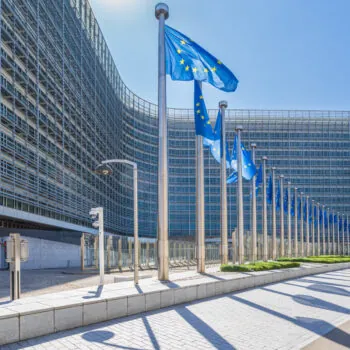The City of London became the Green City of London from the 1-8 July during the first-ever London Climate Action Week. With over 20 events across the week on green and sustainable finance, the city showed it can – or could – use its might as a financial services hub to the benefit of the planet.
Indeed, London can arguably say that it is the world capital of institutional efforts to align the financial system with action to combat climate change. The City of London Corporation was instrumental in creating the green finance principles for China’s Belt and Road Initiative. The UK is playing an important role in the Coalition of Finance Ministers for Climate Action and its Helsinki Principles. The Bank of England has led the way on addressing systemic climate-related financial risk and the British Standards Institute is leading work on sustainable finance in the International Standards Organisation (ISO).
The UK government used the inaugural London Climate Action week to launch its new Green Finance Strategy. E3G together with Principles for Responsible Investment and the City of London acted as secretariat for the Green Finance Taskforce that preceded it. Many of the measures announced within the Strategy were much needed and very welcome, with a deadline for mandatory climate risk reporting a key highlight. However arguably the Strategy did not amount to a plan for delivering the transformational, systemic change needed in the financial system to get the UK to net zero and climate resilience.
There is often a narrative in sustainable finance that there is a ‘wall of money’ ready and waiting to be invested in sustainable projects if only there were viable projects available. And yet project developers often complain of a lack of finance for green investment opportunities. Each is true in some sense, and one of the conclusions of London Climate Action Week was that London’s extraordinary cluster of different types of climate expertise is well placed to try and find ways for the financial system to do a better job of serving the transformation required in the real economy.
Although London Climate Action Week’s scope was global, there was also much focus on our host city. At E3G’s event on ‘Redefining sustainable infrastructure’, laughs were to be had when our rental ‘Boris bikes’ were cited as a form of distributed, innovative transport infrastructure (although some would argue they should be credited to the previous London Mayor), and the Thames Super Sewer, or Tideway Tunnel, was used as an example of ‘the concrete pourers’ dominance in this debate.
Indeed, 70% of CO2 emissions worldwide emanate from cities in one way or another. And cities are often strapped for cash to make the investments they need. This is part of why the European Bank for Reconstruction and Development, based here in London, created its ‘Green Cities’ action plan to help cities across Europe, Central Asia and North Africa build the green infrastructure they need to lower pollution levels and cut carbon.
The events across the week identified, however, that the financial system’s reflex is often to build – new infrastructure, new projects – and yet often what we really need to deliver deep decarbonisation is not to build. We need to apply the waste hierarchy when making decisions of what projects to finance: repair, re-purpose, recycle and only then build new.
What is critical in sustainable finance is also how financial markets respond to climate impacts and ensuring finance for resilience and adaptation as well as mitigation. We often celebrate how reducing costs of renewables and mitigation technologies make the economic case for climate mitigation better. What is often overlooked however is how climate impacts increase the cost of capital for the most vulnerable communities. A solution to this vicious cycle must be found so we do not leave the most climate vulnerable countries and communities behind.
Apparently, Margaret Thatcher was an environmentalist – or so UK Finance Minister John Glen told us at the Green Finance Summit. She was certainly a supporter of the UK’s financial services sector and would hopefully have been pushing for the City of London, London’s financial district, to align its activities and international impacts with the global transition to net zero. This is the challenge for UK green finance – and we look forward to more debate on the ‘how’ at London Climate Action Week 2020.


